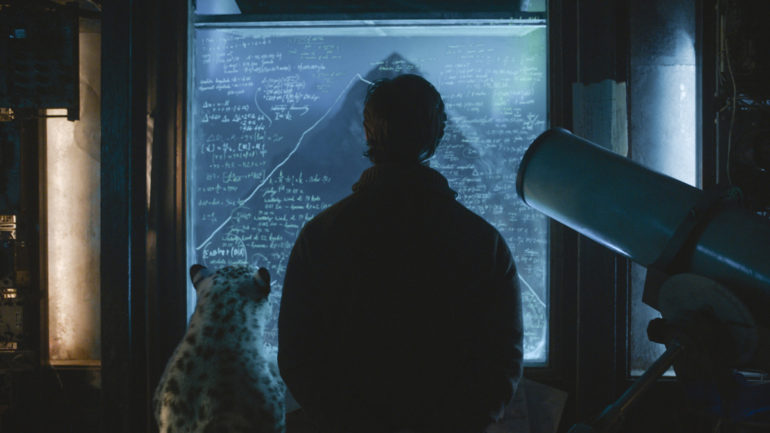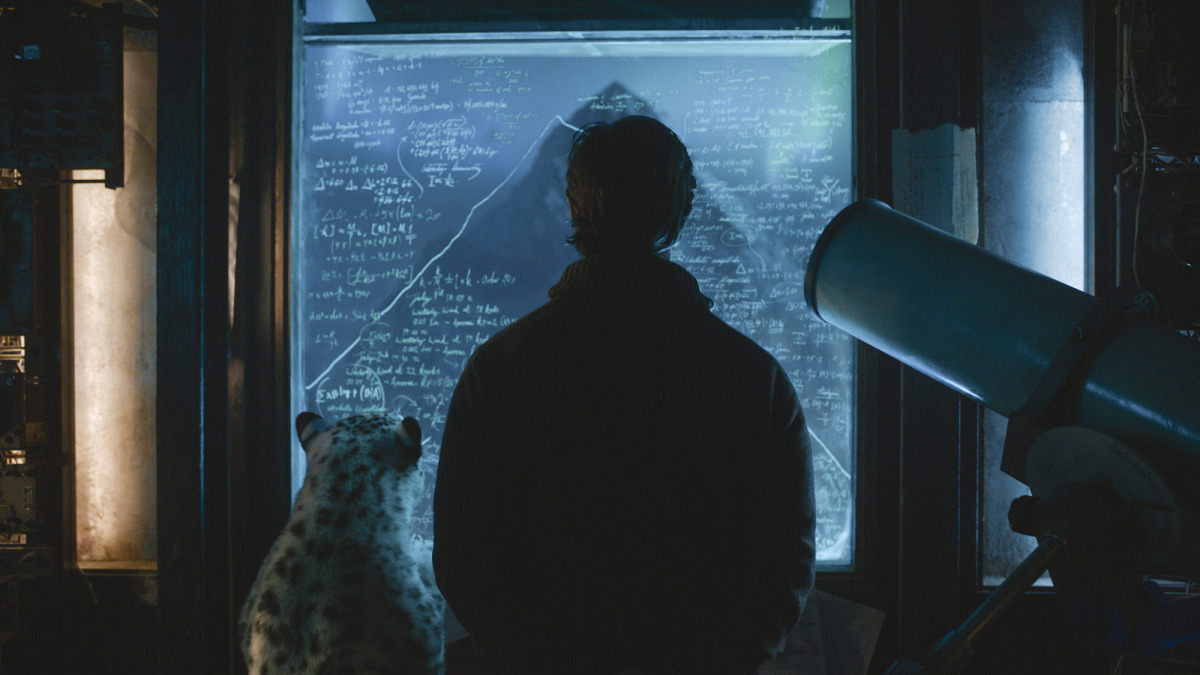‘Betrayal’ is an apt title for this final episode in the season, because – imagine the sheer power James McAvoy talking about crossing over to the other universes would have had, had the show not been doing exactly that since the third episode. As it is, it seems more like they’re playing catch-up – there’s no particular dramatic irony to the audience already knowing.
In other circumstances you could be forgiven for thinking that they’re making hay while the sun shines out of fear of not being recommissioned, but the BBC have been clear that they’re adapting the whole trilogy. The film, as you can tell from my use of singular, did not end up doing the second and third books. It also had a betrayal of its own, in that it left out the titular betrayal from the end of the first, choosing to end on a cheerier note. I’d call this a crowd-pleasing decision if it hadn’t so evidently failed to please the crowd.
But this isn’t about the disappointing film version, this is about the ongoing TV version – which is, if nothing else, far less disappointing overall. That said, I have a betrayal of my own to offer, which is to say that the action sequences in this episode were a bit nothingy. Which is a terrible thing to say of any battle between Catholic Nazi zeppelins and bears with homemade artillery pieces, two things which would drastically improve any action scene you cared to stick them in. This has them both, and yet it’s somehow less than the sum of its parts.
This isn’t to say it’s done badly in any way – indeed, it’s hard to see how one could ruin a matchup between Catholic Nazi zeppelins and artillery bears, if you simply remember to include all those things the rest should take care of itself. The issue is that it’s a bit of a sideshow to the parts of the narrative focusing on the named characters. This isn’t in and of itself a bad thing, we know where the viewers’ interest will really lie, but the problem comes when the show itself buys into this and lets it slip off to one side when Actually Important Things are going on.
‘Betrayal’ follows the formula of ‘The Dæmon-Cages’, on balance the show’s most action-heavy episode, in that for all the blood and thunder, the more compelling parts tend to be the quieter ones. That time it was buoyed by Ruth Wilson’s Mrs. Coulter, easily the finest performance of the whole show – she’s more of the moustache-twirling villain than she should be, which is if nothing else always a surprise coming from a woman, but still does a lovely job whipsawing back and forth across the line labelled ‘unhinged’.
This time around it’s the long-awaited return of James McAvoy in the position of capital-a Actor. Way back in my review of the first episode I summarised his part as Lord Asriel as ‘swashbuckling’, which comes out more seeing him here in the field, although ‘Byronic’ might have been the better word. (I also said that some part of me would always think of him as Mr. Tumnus, and due credit, there’s not a trace of that here.)
So yes, the meat of this is simply James McAvoy and Dafne Keen talking about the nature of sin. This has to live and die by the performances, and live it does – though the lighting, with it still set beneath the northern lights, doesn’t hurt at all there. On reflection, slightly ropy action scenes propped up by serious acting is more or less what you’d expect for a BBC production: not quite movie-scale, but definitely a cut above the rest.
(Though the action’s quite disappointing coming from HBO, the show’s other patron.)
McAvoy isn’t Byronic in the usual way of being sexy and possibly on drugs, but rather Byronic in the way of Satan in Paradise Lost – wanting to get back into heaven and willing to burn it down to do so. Despite starting at a clear advantage, Satan was never the villain of Paradise Lost – but he was still pretty far from a hero. (Lord Boreal’s a far clearer classical-Satan model, if the snake wasn’t a giveaway.) And appropriately, Lord Asriel having been Lyra’s white whale for most of the season, her endgame goal, now having found him it all feels a little…off. Not in the sense of being badly scripted or acted, quite deliberately, but still off. A little too equivocate-y, and not at all the estranged father-figure anyone might have hoped for.
The big betrayal in ‘Betrayal’, when it comes, has been signposted like a policeman saying he only has a day left before retirement. But then, that’s how the story works. It’s worth remembering that Dante reserved the deepest layer of hell for the traitors, including Satan himself – and this, too was required for the story to work. It’s another loss of innocence, like Adam and Eve being booted out of the garden.
Usually the review of a season’s final episode is a good point at which to weigh up the season as a whole, but here you can’t really do that without thinking about the next one as well. As established, they have got the second and third guaranteed – which is good news for the fans, but is the kind of thing that can breed complacency. This is why, for instance, a good deal of this season was devoted to setting up the second, at greater length than really necessary.
So the second season can – potentially – hit the ground running, but they needn’t have laid that groundwork to the detriment of the first. ‘Betrayal’, at least, manages to keep on track with Lyra and Will’s stories without getting too broad and distracted, even if this is at the expense of something as super as bears fighting zeppelins. If the second season can possibly balance those two sides of the show it’ll be in a very good position indeed – it’ll do less well if it carries on down the path of introducing new plot elements well before time and badly mishandling the more fantastical stuff.
Some of the coverage you find on Cultured Vultures contains affiliate links, which provide us with small commissions based on purchases made from visiting our site. We cover gaming news, movie reviews, wrestling and much more.




